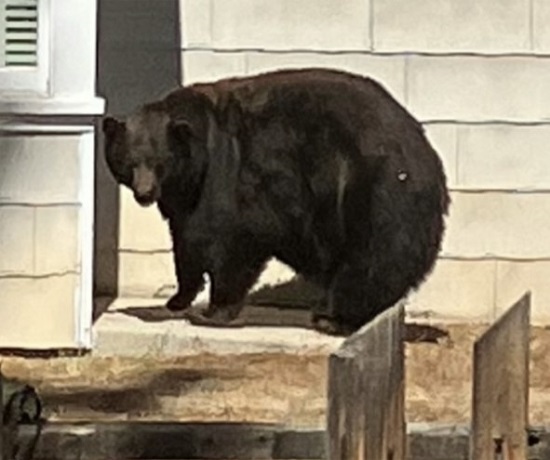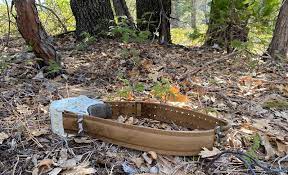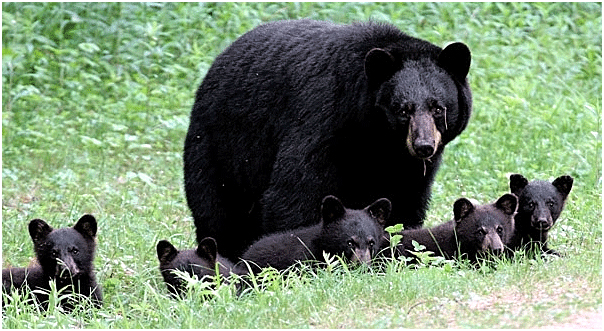
A massive female black bear, dubbed “Hank the Tank” was tranquilized and captured last week by wildlife biologists at the California Department of Fish and Wildlife (‘CDFW’). The bear, registered with CDFW as 64F, was responsible for at least 21 DNA-confirmed home break-ins and extensive property damage in Tahoe Keys, CA, dating back to early 2022 and was labeled a ‘conflict bear’. Her three cubs were also captured in the effort.

The bear will be transported to The Wild Animal Sanctuary near Springfield, Colorado this week once she passes health checks. Her three cubs may be transferred to Sonoma County Wildlife Rescue, a CDFW-permitted wildlife reserve in Sonoma County, CA. One of the cubs is believed to have suffered serious injuries from a vehicle strike earlier this month, though is still mobile. The injured cub will be given a thorough veterinary evaluation.
The 500lbs (227kg) bear is one of three bears that were dubbed “Hank the Tank” by the public and was one of the most prolific thieves in the South Lake Tahoe, CA, area. The public had mistaken 64F as a male bear and she is one of three bears responsible for break-ins in the area. She was initially thought to have been responsible for over 40 break-ins, but DNA evidence showed that there are at least two other large bears rummaging through residential properties in the Lake Tahoe area. Their whereabouts is currently unclear, but CDFW assures the public that no bears will be euthanized.
Wildlife biologists believe that 64F, who is considerably larger than most black bears, has grown unafraid of humans and has learned to use her strength to force her way into homes in the area. Bears that become used to humans and repeatedly are reported for human conflict are dubbed ‘conflict bears’ and are typically tagged in both ears. In March of 2023, 64F was discovered denning under a residence in South Lake Tahoe along with her three cubs. At that point, she was tagged and given a satellite tracking collar. 64F was able to shed the satellite tracking collar in May this year.

CDFW staff also implanted Passive Integrated Transponders (‘PIT’) tags into the cubs for future identification. PIT tags are similar to chips implanted into pet dogs and cats. For the animals’ and the public’s safety, a relocation of 64F was the only feasible option. The cubs are separated from their mother in hopes that they can discontinue the negative behaviors they learned from their mother and be returned to the wild.
